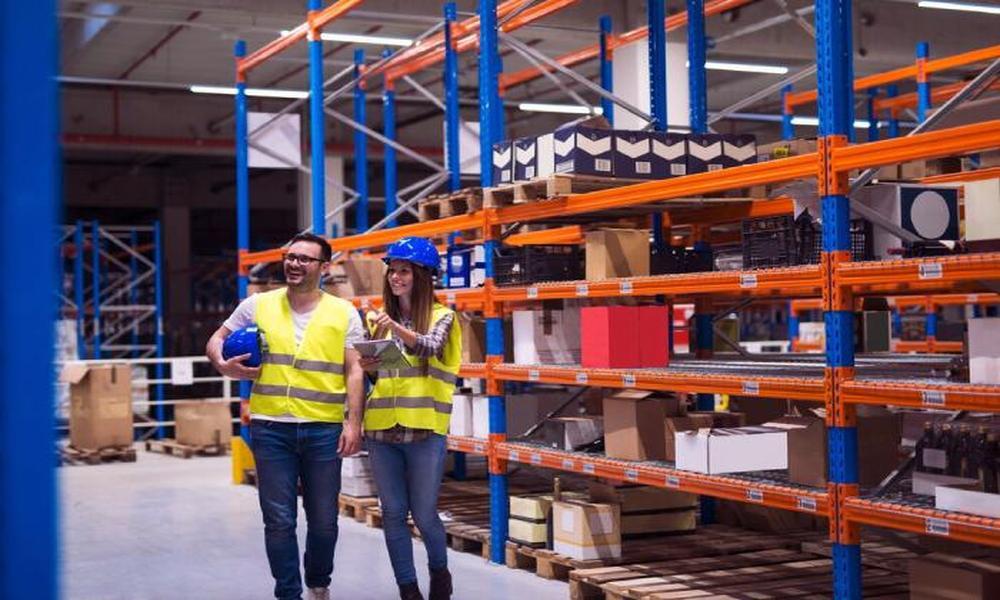
In today’s rapidly evolving landscape of commerce and industry, the efficiency and effectiveness of supply chain management have become paramount. Within this intricate web of production, distribution, and delivery, the concept of Third-Party Logistics (3PL) warehousing has risen to prominence.
3PL warehousing, an integral component of modern supply chains, serves as a cornerstone for businesses seeking to optimize their logistics operations and streamline the flow of goods from manufacturer to consumer. In this article, we explore the pivotal role that 3PL warehousing plays in contemporary supply chains, highlighting its relevance, functions, and the invaluable benefits it brings to the table.
What is 3PL Warehousing?

The concept of Third-Party Logistics (3PL) warehousing involves entrusting the storage and distribution of goods to external service providers who specialize in these operations. Rather than handling their own warehouses, businesses opt to collaborate with 3PL providers who are proficient in managing different aspects of the supply chain. This arrangement enables companies to concentrate on their primary strengths while delegating logistics and distribution tasks to knowledgeable professionals.
Key Functions of 3PL Warehousing
Storage and Inventory Management
Fundamentally, 3PL warehousing functions as a dependable and effective storage option. Companies can securely store their merchandise in meticulously maintained facilities, thereby conserving precious space and minimizing expenses related to warehouse upkeep. Furthermore, 3PL providers employ cutting-edge inventory management systems to monitor inventory levels, mitigating the chances of running out of stock or having excessive stock.
Order Fulfillment
The timely and accurate fulfillment of customer orders is a crucial element for any business. 3PL warehousing providers excel in this aspect, guaranteeing that orders are carefully selected, packaged, and delivered promptly. This high level of accuracy enhances customer contentment and contributes to building a positive brand image.
Transportation and Distribution
In addition to transportation and distribution services, 3PL providers also specialize in coordinating the movement of goods from the warehouse to their ultimate destinations. This is especially advantageous for companies with intricate supply chains or worldwide operations, as it allows them to utilize the most efficient and cost-effective methods.
Value-Added Services
Numerous third-party logistics (3PL) providers exceed the fundamental offerings by providing additional services that add value. These supplementary services encompass product labeling, kitting, assembly, and even customization. By availing such services, businesses can distinguish their products and fulfill the distinctive requirements of their customers.
The Benefits of 3PL Warehousing
- Cost Savings: One of the most significant advantages of 3PL warehousing is cost savings. Businesses can reduce their overhead costs associated with owning and maintaining warehouses, along with the expenses tied to hiring and training logistics solutions staff. 3PL providers can also take advantage of economies of scale, making their services more cost-effective than in-house alternatives.
- Scalability and Flexibility: 3PL warehousing offers businesses the flexibility to scale their operations up or down based on demand. This adaptability is particularly valuable in seasonal industries or for companies experiencing rapid growth.
- Expertise and Technology: Businesses can take advantage of the expertise and advanced technology of logistics experts, known as 3PL providers, to optimize their warehouse operations. This partnership allows businesses to access cutting-edge systems for inventory management, order tracking, and other benefits.
- Focus on Core Competencies: By outsourcing logistics to 3PL providers, businesses can concentrate on their core competencies. This results in increased efficiency and a sharper focus on innovation and market growth.
To sum up, the role of 3PL warehousing in modern supply chains cannot be underestimated. With the rise of e-commerce and global trade, businesses are increasingly relying on 3PL providers to handle their warehousing and distribution needs. From reducing costs and increasing efficiency to offering specialized services and technology, 3PL warehousing plays a crucial role in helping companies meet the demands of a rapidly evolving supply chain landscape. As businesses continue to adapt to changing consumer behaviors and market trends, the importance of 3PL warehousing will only continue to grow in the years to come. Partnering with a reliable and experienced 3PL provider can make all the difference in a company’s success.






